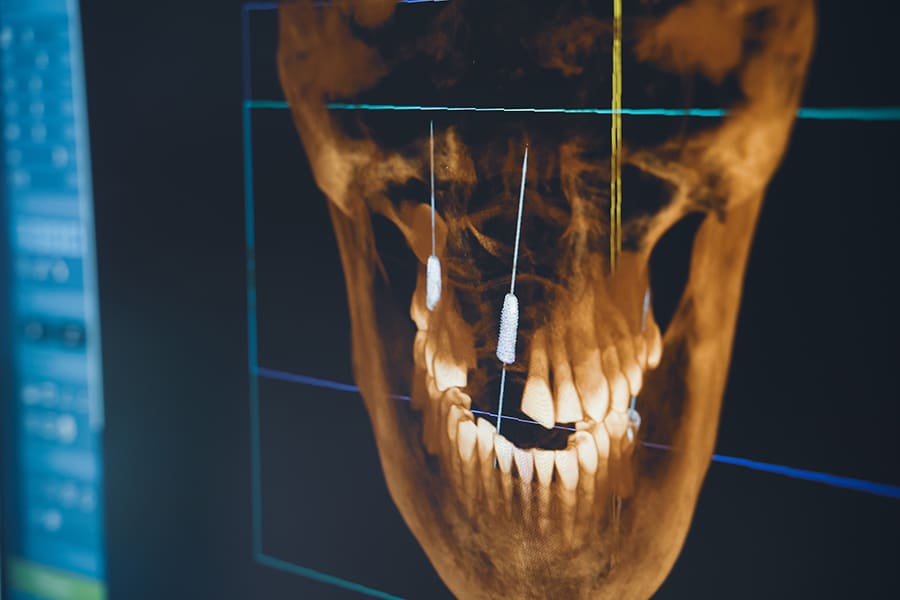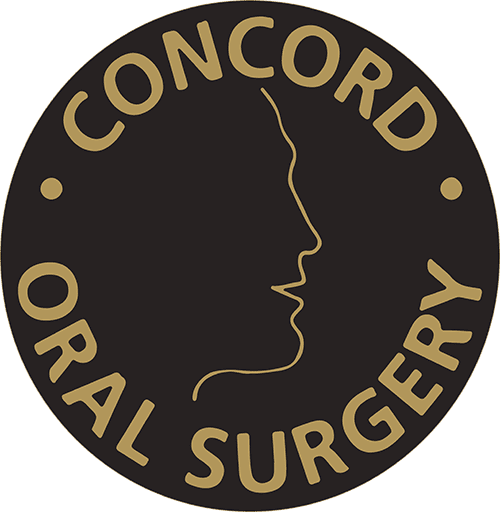Diagnostic imaging technology plays a crucial role in modern dentistry, allowing dental professionals to obtain detailed insights into a patient’s oral health.
It has transformed the way oral surgeons approach treatment planning, equipping them with essential tools for precise and effective care.
Key Takeaway
Digital x-rays, 3D and CBCT scans allow dental professionals to make accurate diagnoses and create precise treatment plans, leading to better patient care and outcomes.
Digital X-Rays
Digital x-rays are an essential tool in diagnostic imaging, offering high-quality images with a reduced dose of radiation compared to traditional film x-rays.
These x-rays assess both bone structures and soft tissue conditions. Digital x-rays assist in identifying tooth decay, bone loss, and other oral health issues without significant radiation exposure.
This advanced technology allows for immediate viewing and sharing of images among dental professionals, improving patient care and treatment planning.
3D Imaging
3D imaging has transformed the way dental professionals approach complex dental procedures.
It provides detailed, three-dimensional images of the entire mouth, allowing for an accurate assessment of bone quality, dental structures, and nerve pathways.
This technology is especially beneficial in planning for dental implants and evaluating maxillofacial structures.
The enhanced image quality ensures precise imaging of hard-to-see areas, offering a comprehensive view that informs surgical planning and patient care.
Benefits of 3D Imaging
- Accurate diagnoses: Detailed imaging simplifies the identification of dental conditions, such as dental trauma or temporomandibular joint disorders.
- Treatment planning: Facilitates precise treatment planning with high-quality images, reducing the chances of complications during dental procedures.
- Patient safety: Uses lower radiation doses, minimizing the risk associated with scatter radiation.
CBCT Scans
Cone Beam Computed Tomography (CBCT) is a specialized type of imaging that uses a cone-shaped x-ray beam to create detailed images of the bone and soft tissue structures of the facial region.
A single scan can provide comprehensive 3D images that are invaluable for oral surgeons in treatment planning.
Unlike traditional CT scans, CBCT offers detailed images at a significantly lower dose of radiation than traditional helical CT scans, making it a safer choice for patients.
Applications of CBCT Scans
- Surgical and treatment planning: CBCT scans are essential for planning procedures like dental implants and wisdom tooth removal, offering a precise assessment of bone structures and nerve canals.
- Assessment of dental trauma: Offers a detailed view of areas affected by injury, aiding in the accurate diagnosis and management of trauma cases.
- Analysis of oral health conditions: Provides detailed imaging of dental and maxillofacial structures, facilitating an understanding of complex cases.

Specific Use Cases
Diagnostic imaging technology is used in various applications within dentistry.
Pre-Surgical Evaluation
Before surgical procedures such as wisdom tooth extractions or dental implant placements, imaging technologies like CBCT scans are used to conduct thorough pre-surgical evaluations.
This ensures the dentist or oral surgeon has a clear understanding of the patient’s anatomical structures, including bone density and nerve pathways, to avoid complications.
Orthodontic Assessment
For patients considering orthodontic treatments, digital x-rays and 3D imaging help develop a detailed treatment plan.
These technologies help in assessing the alignment of teeth, bone structure, and the position of unerupted teeth, ensuring effective and customized orthodontic care.
Temporomandibular Joint (TMJ) Disorders
Patients experiencing symptoms of TMJ disorders benefit from imaging technologies that offer detailed insight into jaw joint health.
3D imaging provides comprehensive views of the jaw and joint areas, aiding in the diagnosis and treatment planning for TMJ-related issues.
Dental Implant Procedures
The success of dental implant procedures relies heavily on accurate treatment planning and precise implant placement.
3D imaging technology, such as the X-Guide NXT, is used to create a virtual surgical map that guides dentists or oral surgeons during the procedure.
This results in more successful outcomes with minimal risk of complications.
Post-Treatment Follow-Up
After dental treatments and surgeries, imaging plays a critical role in monitoring the healing process.
Digital x-rays can track changes in bone structure, while CBCT scans offer detailed assessments of healing areas, ensuring recovery is progressing as expected and interventions, if needed, are timely.
| Technology | Description | Benefits | Application |
|---|---|---|---|
| Digital X-rays | Essential diagnostic imaging tool providing high-quality images with lower radiation doses. | Quick identification of dental issues. Immediate image sharing. | Assessing tooth decay and evaluating bone loss. |
| 3D Imaging | Provides detailed three-dimensional images for accurate assessment of dental structures. | Accurate diagnoses, improved treatment planning. | Planning dental implants. Evaluating maxillofacial structures. |
| CBCT Scan | Uses a cone-shaped x-ray beam for detailed 3D images of bone and soft tissue in the facial region. | Lower radiation exposure. Comprehensive surgical planning. | Surgical planning for implants. Assessing dental trauma. |
| iTero Scanner | Advanced intraoral scanning system capturing detailed images of teeth and gums. | Non-invasive, accurate impressions. | Restorative and orthodontic treatments. |
| X-Guide NXT | Dental navigation system combining 3D imaging and real-time data for implant procedures. | Precise implant placement, improved outcomes, and reduced complications. | Implant surgery and improving surgical success rates. |
See What Results State-of-the-Art Technology Can Achieve
Diagnostic imaging technology has transformed the field of dentistry, allowing oral surgeons to deliver precise and effective treatment for various conditions.
At Concord Oral Surgery, we use the latest in diagnostic imaging to provide our patients with exceptional care.
Experience the benefits of state-of-the-art technology and exceptional care at Concord Oral Surgery. To book an appointment at our oral surgery office in Vaughan, call (905) 669-2616 or complete the appointment request form.
